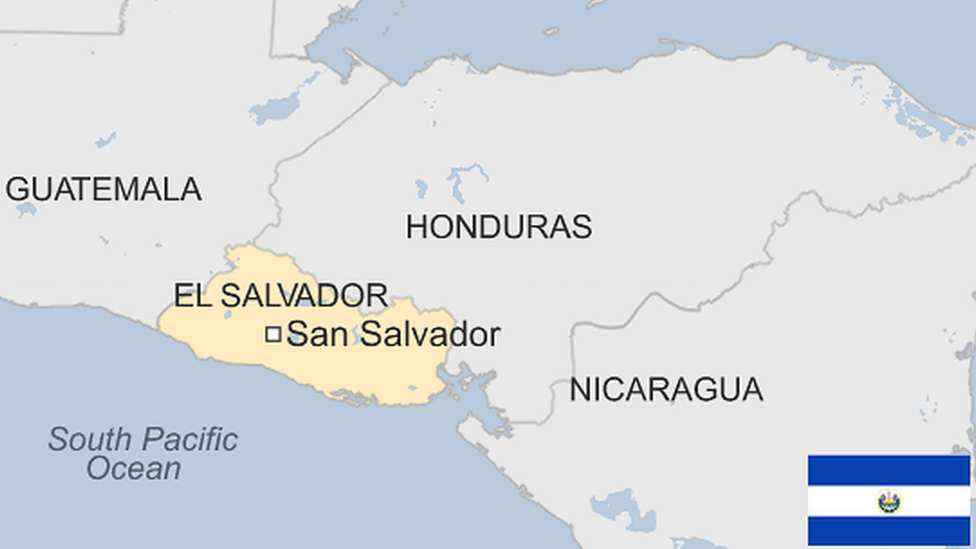El Salvador's president eyes re-election on back of gang crackdown
- Published
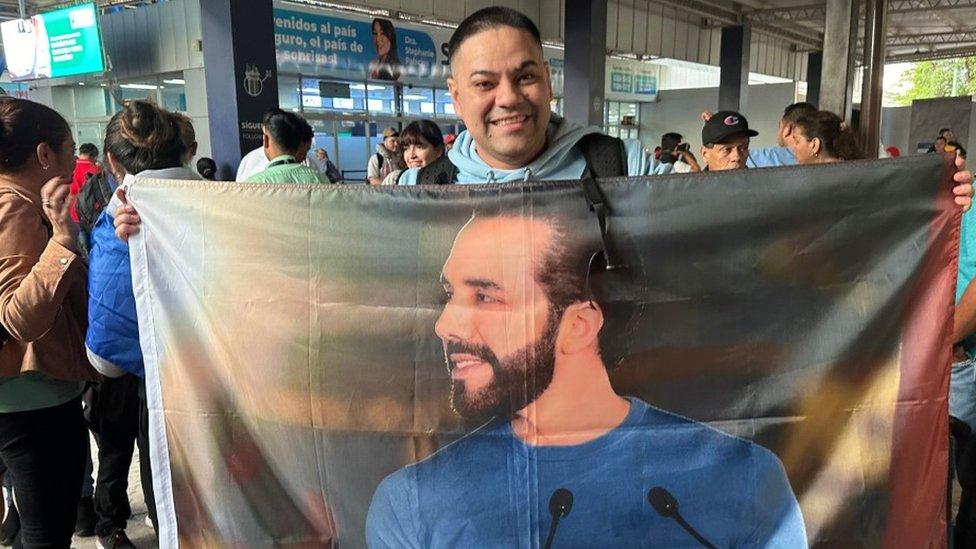
Francisco Villegas travelled back from his home in Pennsylvania just to vote for Nayib Bukele
There was no doubting Francisco Villegas' political colours as he stepped off his flight into El Salvador.
Draped in a flag bearing President Nayib Bukele's face, he was dressed in light blue - the colour of the ruling party, Nuevas Ideas.
"We're going to win!" he yelled, to cheers and applause from a small crowd of people waiting for their relatives outside the arrivals lounge.
Like thousands of Salvadorans living abroad, Francisco is such a staunch supporter of El Salvador's controversial president that he travelled back from his home in Pennsylvania specifically to vote for him.
"Quite honestly, in the past I didn't care who won," he says. "But I've seen the changes in five years and I thought I'd make the effort to come and support him. It's been a 180-degree shift. I feel so safe here now."
He's far from the only one who feels that way.
In the run up to Sunday's election, Mr Bukele's campaign spots have featured bereaved relatives of victims of the country's two main gangs, the MS-13 and the 18th Street gang.
In tearful testimony, they thank the president for his ruthless military-led crackdown which has turned El Salvador from one of the most dangerous nations in the world to one of Latin America's safest.
"Never again", reads the slogan.
It's a potent message in a country which has suffered as much as El Salvador and its implication - that a vote for the president's rivals would see the gangs take a foothold again - is likely to see Mr Bukele re-elected by a huge margin. The latest polls have his main rivals receiving barely 12% of the vote between them.
Constructor, Armando Grande, used to faithfully vote for one of those rivals - the left-wing FMLN party. Such has been the transformation he's witnessed in the neighbourhoods where he works, this time he plans to vote for President Bukele.
"What we thought couldn't be done in decades, he's achieved in five years. I can only rate his first term as ten out of ten," he says.
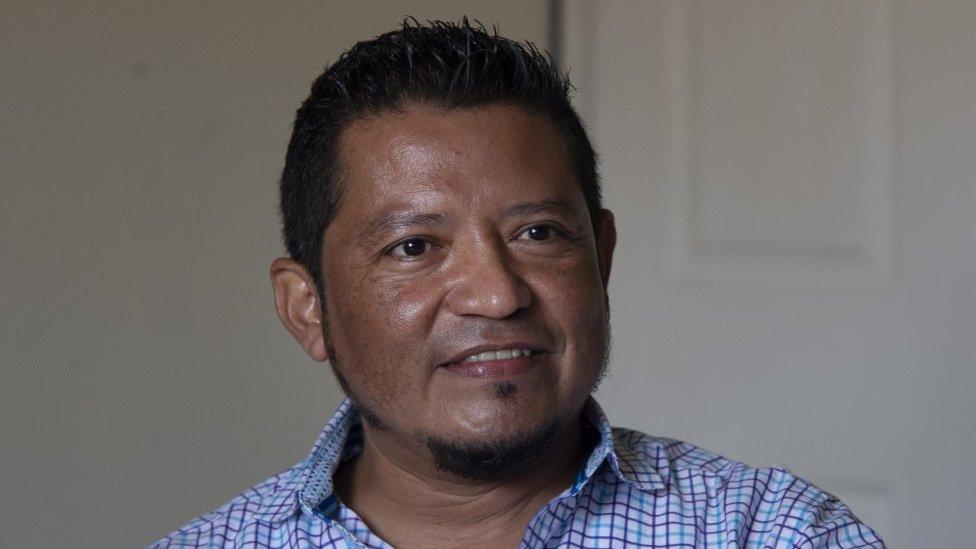
Armando Grande wants the president to focus on the nation's economic needs in a second term
The biggest and most glaring problem in the country was security.
"We were drowning," Armando remembers. Now the gang issue has been seemingly brought under control, he'd like to see the president focus on the Central American nation's urgent economic needs in his second term.
The government says its investments in Bitcoin - in which El Salvador declared the cryptocurrency legal tender - are now in the black.
But Armando readily admits President Bukele's Bitcoin experiment hasn't caught on with the general public or most businesses and would like to see him take more traditional steps to tackle the cost of living.
So it remains security - both the newfound sense of peace and the nagging fear that the bad old days might return - that will prompt most Bukele voters to the polls.
Critics, though, see a slide into authoritarianism and autocracy.
"To begin with, his re-election is unconstitutional", says Alejandro Diaz of the human rights NGO, Tutela Legal. Mr Bukele says the constitutional court has ruled that he can stand for re-election as long as he doesn't exercise the role of president for six months before a second term.
Critics say he appointed loyalists to the court in order to reach a favourable ruling.
"One man's subjective decisions are going to dominate the three branches of power," Alejandro Díaz says of a second Bukele term.
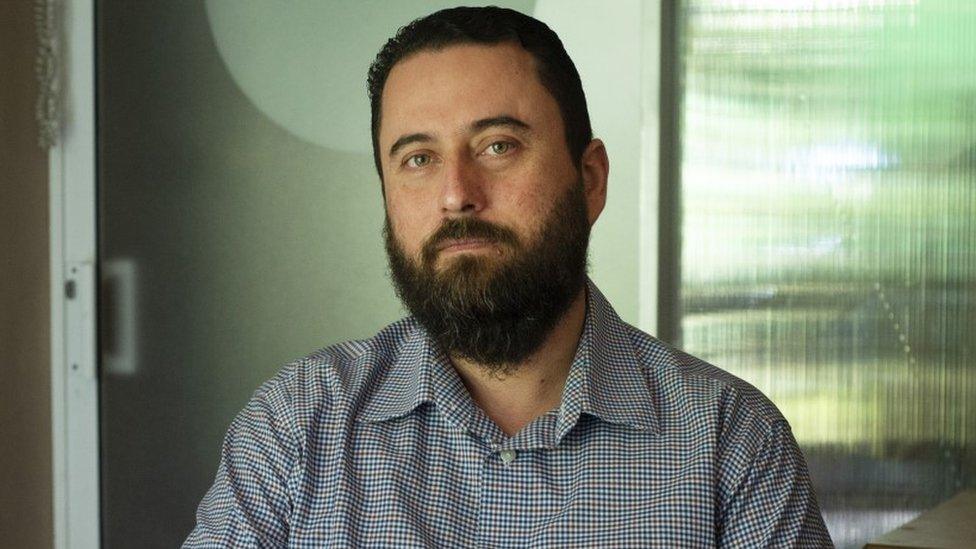
Alejandro Díaz believes the president's re-election will be unconstitutional
"The control will intensify with no clear division between the powers of the state" he warns, saying that "through manipulation and propaganda, the majority seem to be comfortable with the erosion of their democracy in El Salvador".
Tutela Legal represents around 500 families who say their relatives have been unjustly swept up in the mass arrests as part of President Bukele's gang crackdown.
Some 75,000 people have been detained since the "state of exception" - an emergency measure granting draconian powers to the police and military - was imposed in March 2022.
Salvadoran and international human rights organisations claim many thousands of them have no discernible link to gang crime. Others were forced to collaborate with the gangs, either as lookouts or to hide guns or drugs for them, out of fear of their lives.
Bukele voter, Armando, has limited sympathy for such cases.
"It's impossible to avoid some innocent people getting caught up in it," he concedes. "But it's a necessary evil to fix this huge problem that we had."
That's not how Berta Silvestre sees it.
She lives in Colonia Montelimar, a neighbourhood that until recently was controlled by the fearsome MS-13. Her two daughters and her grandson were arrested for "unlawful association" leaving her to bring up four small granddaughters almost singlehandedly.
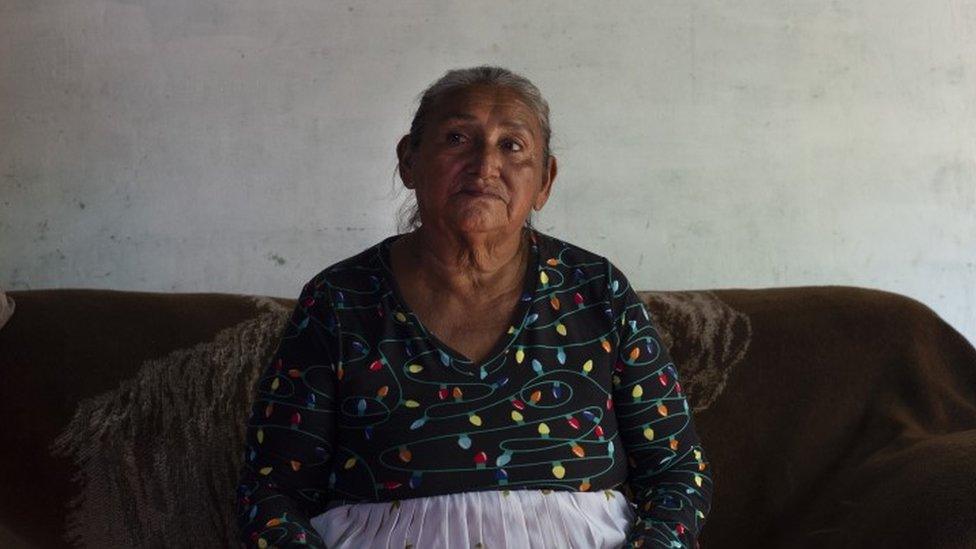
Berta Silvestre is scared about how another five years of Nayib Bukele may impact her family members' trials
Berta insists her children were street vendors who were not involved in gang activity.
"I've had no contact with them in almost two years," she weeps. "I ask how they're doing but the authorities don't tell me anything." Berta is frantic with worry about their conditions and treatment inside jail.
She's been told it could be years before her daughters get a proper trial. Meanwhile, she fears what another five years of Nayib Bukele as president might mean for her beleaguered family.
"They say things are going to get even harder, especially for the relatives of those in prison," she sobs.
Outside the National Palace in San Salvador, workmen are erecting a stage and a huge sound system ahead of Nayib Bukele's planned victory party.
In just five years, this 42-year-old media-savvy leader has become a point of reference for conservative leaders across the Americas trying to burnish their credentials as "tough on crime".
From Argentina to the US, right-wing politicians have pointed to Bukele's model as the best way to tackle gangs.
He has undoubtedly changed the face of this impoverished, conflicted nation - and voters adore him for it. Rarely in Central America has a president been so clear of his rivals before a single vote was even cast.
Related topics
- Published29 May 2023
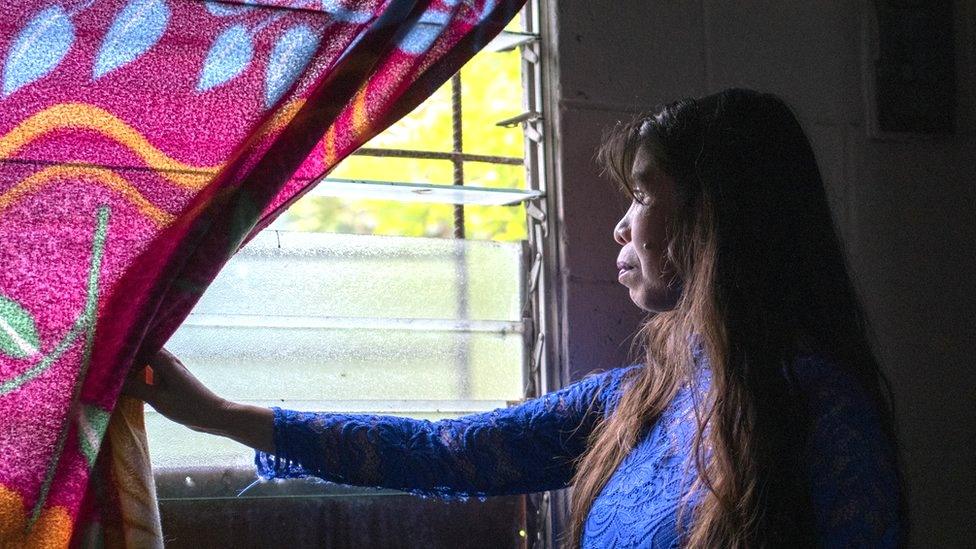
- Published6 December 2023
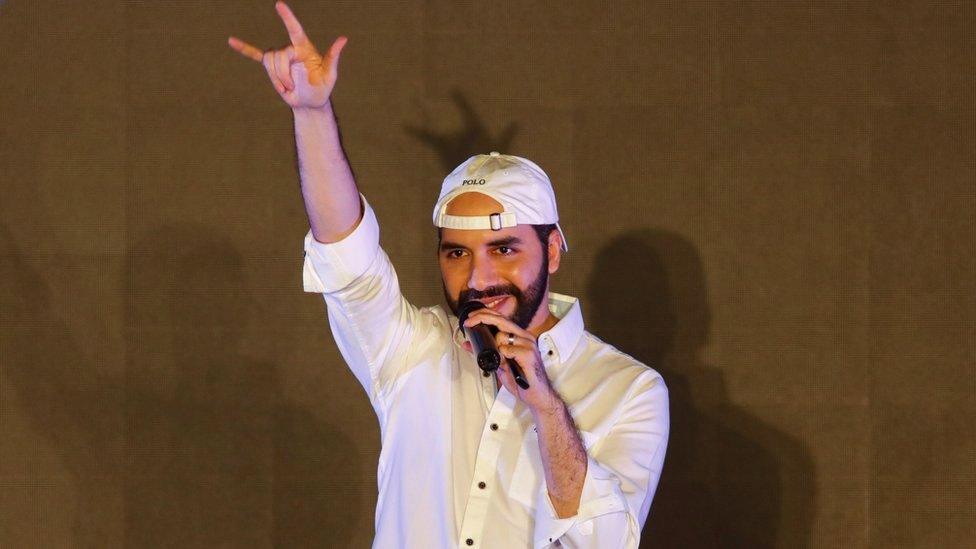
- Published2 August 2023
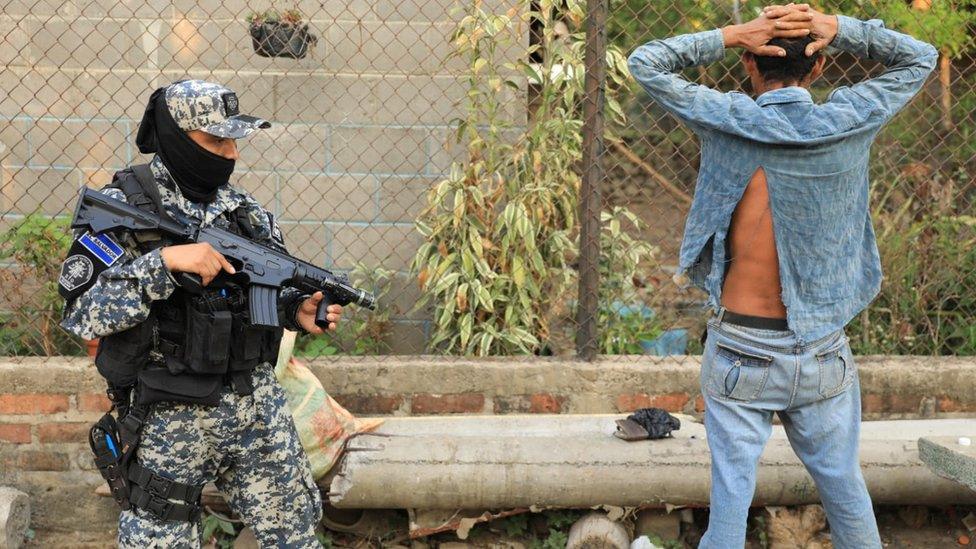
- Published9 July 2024
